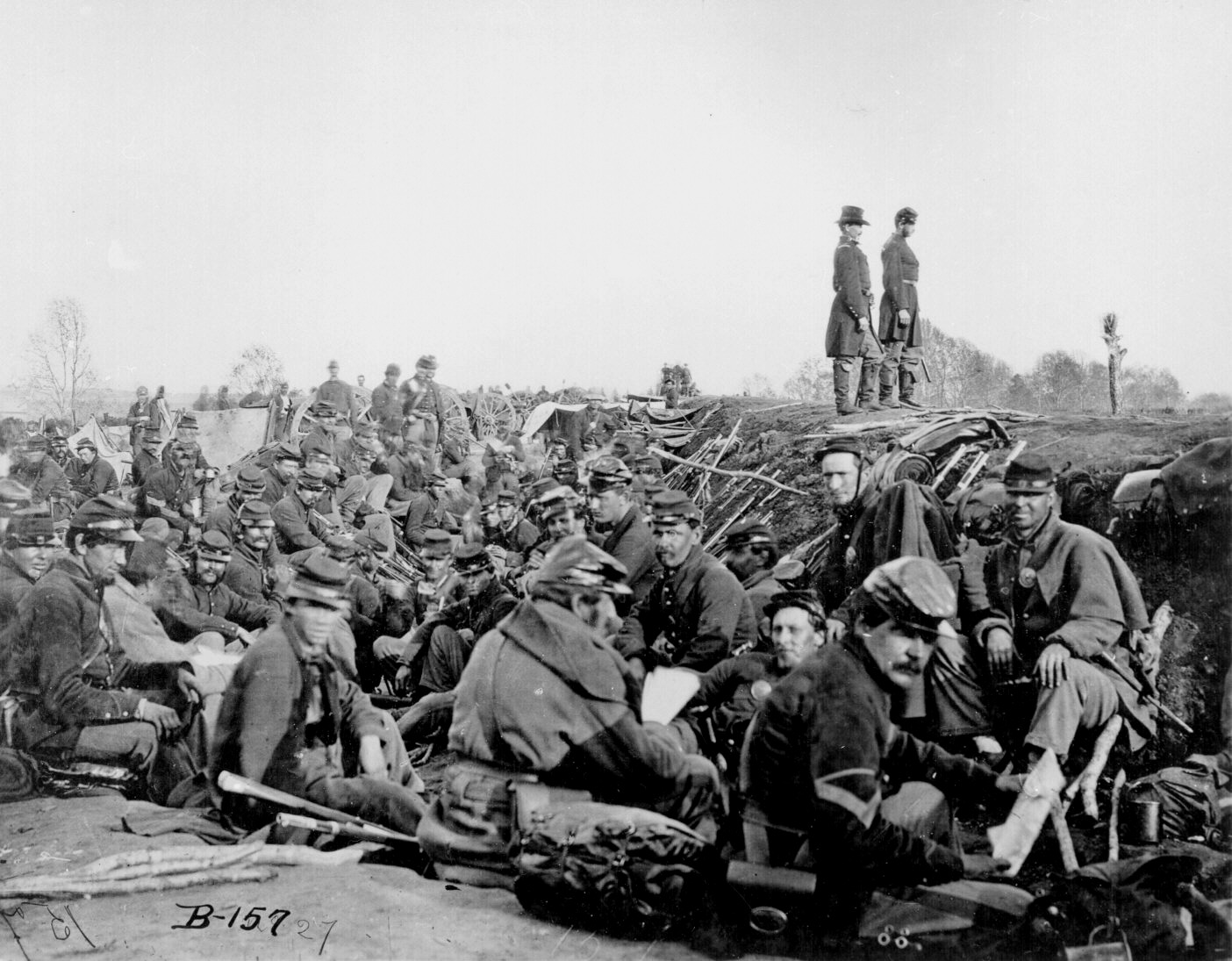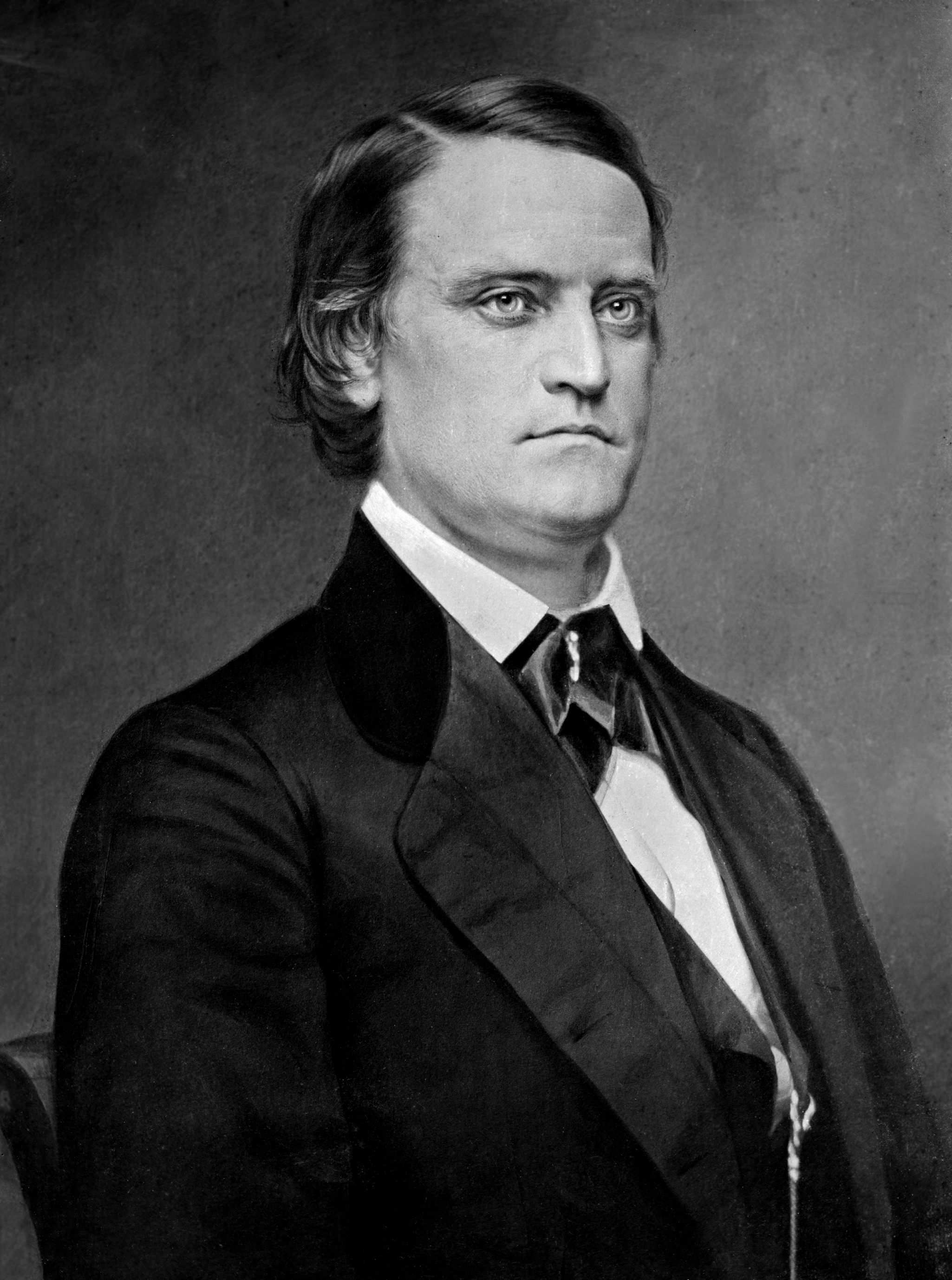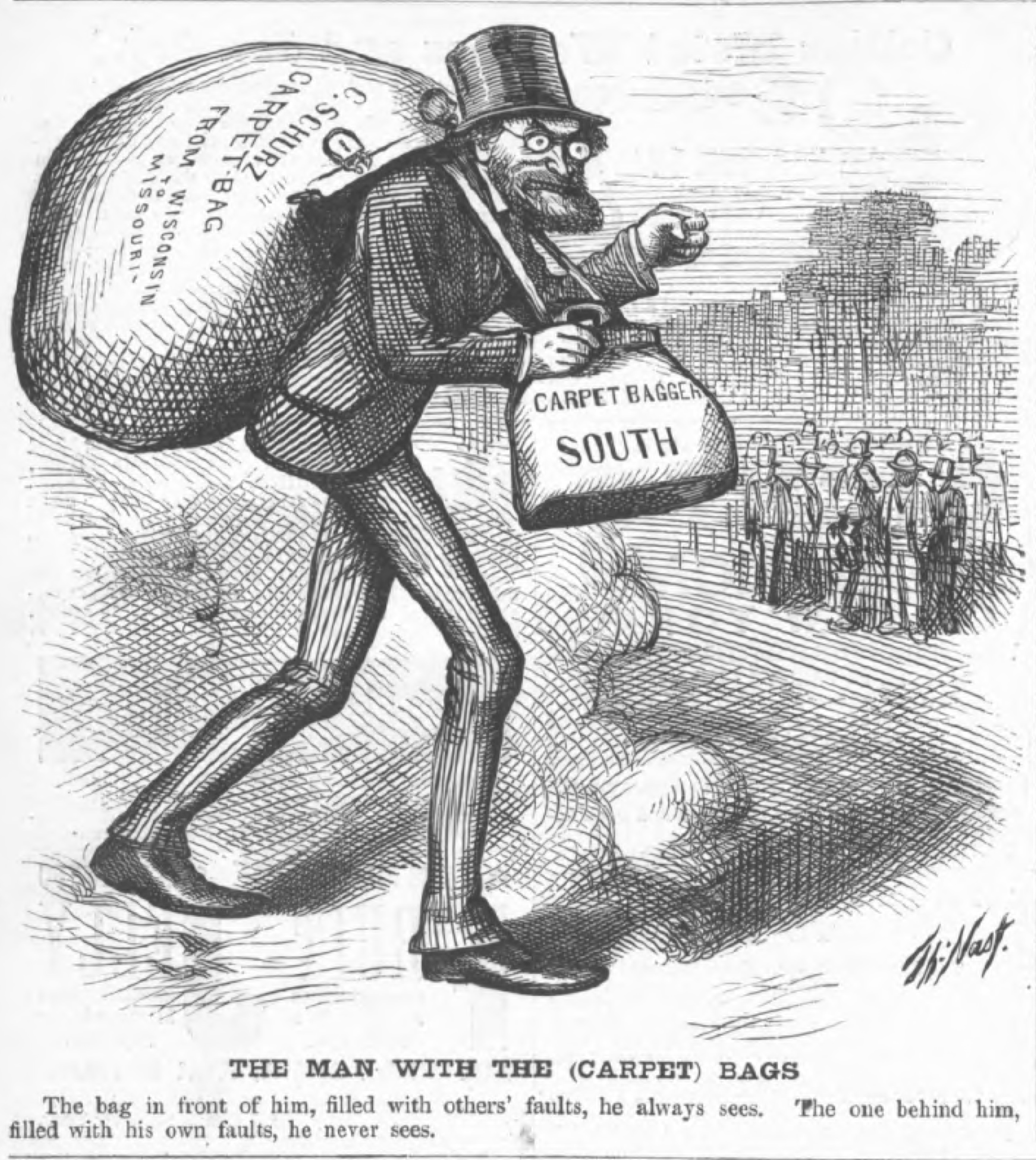|
William Elam Tanner
William Elam Tanner (March 13, 1836, Buckingham County, Virginia - August 6, 1898, Richmond, Virginia) was a Virginia State Senator, a Lieutenant Colonel, and businessman. Early life Named after his late grandfather, Tanner was born to John F. and Harriet L. Tanner, in Buckingham County. John worked with Joseph Reid Anderson and Anderson's father-in-law, Dr. Richard S. Archer, to form J. R. Anderson and Company. They produced iron for the Louisiana sugar mills. The company formed into the Tredegar Iron Works Company by 1841. John secured a job for his son at the iron company. Civil War Tanner was employed as a bookkeeper for the Tredegar Iron Works in Richmond. Tanner was commissioned a Lieutenant in the Letcher Artillery in 1862. After his service in 6th Virginia Infantry, he was promoted to Lieutenant Colonel in the 2nd Virginia Infantry. On September 29–30, 1864, Tanner fought at Battle of New Market Heights as part of the Siege of Petersburg. Tanner and Delaney Col. W. ... [...More Info...] [...Related Items...] OR: [Wikipedia] [Google] [Baidu] |
Buckingham County, Virginia
Buckingham County is a rural United States county located in the Commonwealth of Virginia, and containing the geographic center of the state. Buckingham County is part of the Piedmont region of Virginia, and the county seat is Buckingham. Buckingham County was created in 1761 from the southeastern portion of Albemarle County and was predominantly farmland. The county was probably named in honor of the Duke of Buckingham, though the precise origin is uncertain. Several changes were made to the borders, until the existing boundaries were established in 1860. As of the 2020 census, the county population was 16,824. Buckingham is part of the Charlottesville Metropolitan Statistical Area. History Buckingham County, lying south of the James River and in the Piedmont at the geographic center of the state, was established on May 1, 1761 from the southeastern portion of Albemarle County. The origin of the county name probably comes from the Duke of Buckingham (Buckinghamshire, ... [...More Info...] [...Related Items...] OR: [Wikipedia] [Google] [Baidu] |
Siege Of Petersburg
The Richmond–Petersburg campaign was a series of battles around Petersburg, Virginia, fought from June 9, 1864, to March 25, 1865, during the American Civil War. Although it is more popularly known as the Siege of Petersburg, it was not a classic military siege, in which a city is usually surrounded and all supply lines are cut off, nor was it strictly limited to actions against Petersburg. The campaign consisted of nine months of trench warfare in which Union forces commanded by Lt. Gen. Ulysses S. Grant assaulted Petersburg unsuccessfully and then constructed trench lines that eventually extended over from the eastern outskirts of Richmond, Virginia, to around the eastern and southern outskirts of Petersburg. Petersburg was crucial to the supply of Confederate Gen. Robert E. Lee's army and the Confederate capital of Richmond. Numerous raids were conducted and battles fought in attempts to cut off the Richmond and Petersburg Railroad. Many of these battles caused the leng ... [...More Info...] [...Related Items...] OR: [Wikipedia] [Google] [Baidu] |
Henrico, Virginia
Henrico is the name used by the U.S. Postal Service for several ZIP code areas in unincorporated parts of Henrico County, Virginia, surrounding the city of Richmond, Virginia, Richmond. "Other acceptable cities" listed by the USPS for parts of Henrico are Richmond, Highland Springs, VA, Highland Springs, Regency, Virginia, Regency, and Ridge, Virginia, Ridge, whereas Millers, Virginia, Millers, Montrose, VA, Montrose, Montrose Heights, Virginia, Montrose Heights, Staples Mill, Virginia, Staples Mill, Tuckahoe, VA, Tuckahoe, Varina, VA, Varina, and Westbury, Virginia, Westbury are alternate names for portions of Henrico that are not recommended for use in mailing addresses. Henrico is identified in the National Register of Historic Places's NRIS database as being the location of, or nearest community to, the Curles Neck Farm.Note, however, the NRIS identification of location for another place identified in NRIS as being in or near Henrico, Emmanuel Church at Brook Hill, seems to have ... [...More Info...] [...Related Items...] OR: [Wikipedia] [Google] [Baidu] |
Bradley Tyler Johnson
Bradley Tyler Johnson (September 29, 1829 – October 5, 1903) was an American lawyer, soldier, and writer. Although his home state of Maryland remained in the Union during the American Civil War, Johnson owned and traded slaves, and accordingly served as a brigadier general in the Confederate States Army, leading efforts to raise a Maryland Line in the CSA, and rising to command the 1st Maryland Infantry, CSA. Early life Johnson was born in Frederick City, Maryland, a son of Charles Worthington Johnson and Eleanor Murdock Tyler.Hanson, p. 57. He graduated from Princeton in 1849, read law with William Ross of Frederick, and finished his legal degree at Harvard. He was admitted to the bar in 1851. On June 23, 1851, he married Jane Claudia Saunders of North Carolina (a daughter of Hon. Romulus Mitchell Saunders and granddaughter of Judge William Johnson). Their son, Bradley Saunders Johnson was born on February 14, 1856. Johnson was a delegate to the National Democr ... [...More Info...] [...Related Items...] OR: [Wikipedia] [Google] [Baidu] |
Alderman
An alderman is a member of a Municipal government, municipal assembly or council in many Jurisdiction, jurisdictions founded upon English law. The term may be titular, denoting a high-ranking member of a borough or county council, a council member chosen by the elected members themselves rather than by Direct election, popular vote, or a council member elected by voters. Etymology The title is derived from the Old English title of ''ealdorman'', literally meaning "elder man", and was used by the chief nobles presiding over shires. Similar titles exist in some Germanic countries, such as the Sweden, Swedish language ', the Danish language, Danish, Low German, Low German language ', and West Frisia, West Frisian language ', the Netherlands, Dutch language ', the (non-Germanic) Finland, Finnish language ' (a borrowing from the Germanic Swedes next door), and the German language, High German ', which all mean "elder man" or "wise man". Usage by country Australia Many local government ... [...More Info...] [...Related Items...] OR: [Wikipedia] [Google] [Baidu] |
Southern Democrats
Southern Democrats, historically sometimes known colloquially as Dixiecrats, are members of the U.S. History of the Democratic Party (United States), Democratic Party who reside in the Southern United States. Southern Democrats were generally much more conservative than Northern Democratic Party, Northern Democrats with most of them voting against the Civil Rights Act of 1964 by holding the longest filibuster in the American Senate history while Democrats in non-Southern states supported the Civil Rights Act of 1964. After 1994 the Republican Party (United States), Republicans typically won most elections in the South. In the 19th century, Southern Democrats were people in the South who believed in Jacksonian democracy. In the 19th century, they defended slavery in the United States, and promoted its expansion into the West against northern Free Soil opposition. The 1860 United States presidential election, United States presidential election of 1860 formalized the split in the ... [...More Info...] [...Related Items...] OR: [Wikipedia] [Google] [Baidu] |
War Democrats
War Democrats in American politics of the 1860s were members of the Democratic Party who supported the Union and rejected the policies of the Copperheads (or Peace Democrats). The War Democrats demanded a more aggressive policy toward the Confederacy and supported the policies of Republican President Abraham Lincoln when the American Civil War broke out a few months after his victory in the 1860 presidential election. Ohio In the critical state elections in Ohio in 1862, the Republicans and War Democrats formed a Unionist Party. This led to victory over the Democrats, led by Copperhead Clement Vallandigham. However, it caused trouble for Radical Republican Senator Benjamin Wade's reelection bid. War Democrats opposed Wade's radicalism, and Wade refused to make concessions to their point of view. He was narrowly reelected by the legislature. In 1863, the Ohio gubernatorial campaign drew national attention. Ohio Republicans and War Democrats were dissatisfied with the lea ... [...More Info...] [...Related Items...] OR: [Wikipedia] [Google] [Baidu] |
Carpetbaggers
In the history of the United States, carpetbagger is a largely historical term used by Southerners to describe opportunistic Northerners who came to the Southern states after the American Civil War, who were perceived to be exploiting the local populace for their own financial, political, and/or social gain. The term broadly included both individuals who sought to promote Republican politics (including the right of African Americans to vote and hold office) and individuals who saw business and political opportunities because of the chaotic state of the local economies following the war. In practice, the term ''carpetbagger'' was often applied to any Northerners who were present in the South during the Reconstruction Era (1865–1877). The term is closely associated with "scalawag", a similarly pejorative word used to describe native white Southerners who supported the Republican Party-led Reconstruction. White Southerners commonly denounced "carpetbaggers" collectively durin ... [...More Info...] [...Related Items...] OR: [Wikipedia] [Google] [Baidu] |
Radical Republicans
The Radical Republicans (later also known as " Stalwarts") were a faction within the Republican Party, originating from the party's founding in 1854, some 6 years before the Civil War, until the Compromise of 1877, which effectively ended Reconstruction. They called themselves "Radicals" because of their goal of immediate, complete, and permanent eradication of slavery, without compromise. They were opposed during the War by the Moderate Republicans (led by President Abraham Lincoln), and by the pro-slavery and anti-Reconstruction Democratic Party. Radicals led efforts after the war to establish civil rights for former slaves and fully implement em ... [...More Info...] [...Related Items...] OR: [Wikipedia] [Google] [Baidu] |
Reconstruction Era
The Reconstruction era was a period in American history following the American Civil War (1861–1865) and lasting until approximately the Compromise of 1877. During Reconstruction, attempts were made to rebuild the country after the bloody Civil War, bring the former Confederate states back into the United States, and to redress the political, social, and economic legacies of slavery. During the era, Congress abolished slavery, ended the remnants of Confederate secession in the South, and passed the 13th, 14th, and 15th Amendments to the Constitution (the Reconstruction Amendments) ostensibly guaranteeing the newly freed slaves (freedmen) the same civil rights as those of whites. Following a year of violent attacks against Blacks in the South, in 1866 Congress federalized the protection of civil rights, and placed formerly secessionist states under the control of the U.S. military, requiring ex-Confederate states to adopt guarantees for the civil rights of free ... [...More Info...] [...Related Items...] OR: [Wikipedia] [Google] [Baidu] |
Edwin Boyle
The name Edwin means "rich friend". It comes from the Old English elements "ead" (rich, blessed) and "ƿine" (friend). The original Anglo-Saxon form is Eadƿine, which is also found for Anglo-Saxon figures. People * Edwin of Northumbria (died 632 or 633), King of Northumbria and Christian saint * Edwin (son of Edward the Elder) (died 933) * Eadwine of Sussex (died 982), King of Sussex * Eadwine of Abingdon (died 990), Abbot of Abingdon * Edwin, Earl of Mercia (died 1071), brother-in-law of Harold Godwinson (Harold II) *Edwin (director) (born 1978), Indonesian filmmaker * Edwin (musician) (born 1968), Canadian musician * Edwin Abeygunasekera, Sri Lankan Sinhala politician, member of the 1st and 2nd State Council of Ceylon * Edwin Ariyadasa (1922-2021), Sri Lankan Sinhala journalist * Edwin Austin Abbey (1852–1911) British artist * Edwin Eugene Aldrin (born 1930), although he changed it to Buzz Aldrin, American astronaut * Edwin Howard Armstrong (1890–1954), American inven ... [...More Info...] [...Related Items...] OR: [Wikipedia] [Google] [Baidu] |





